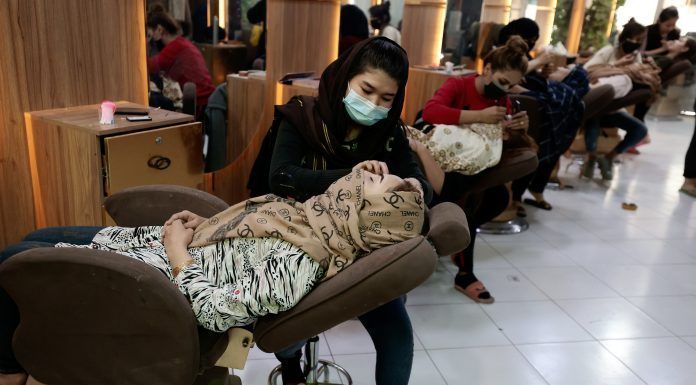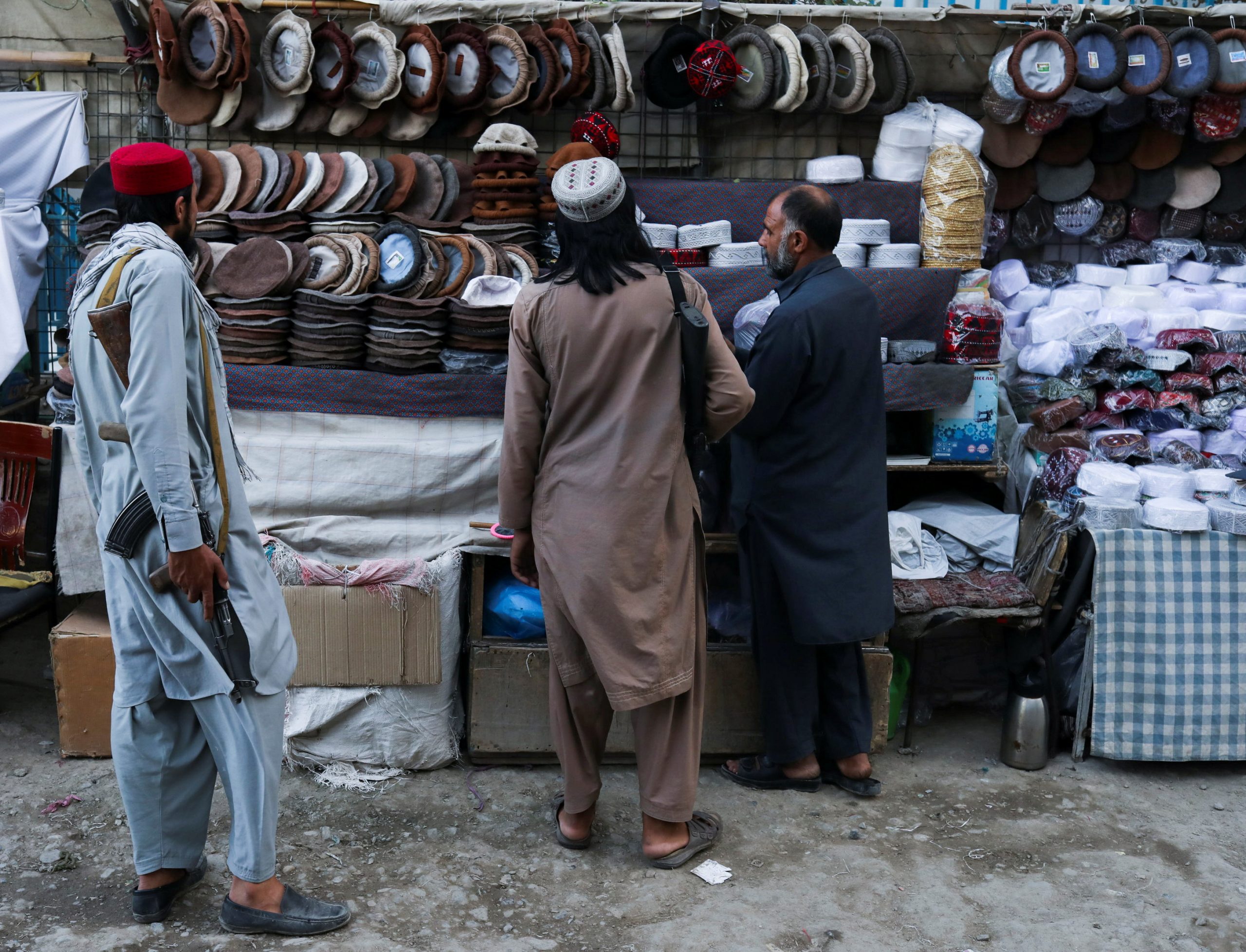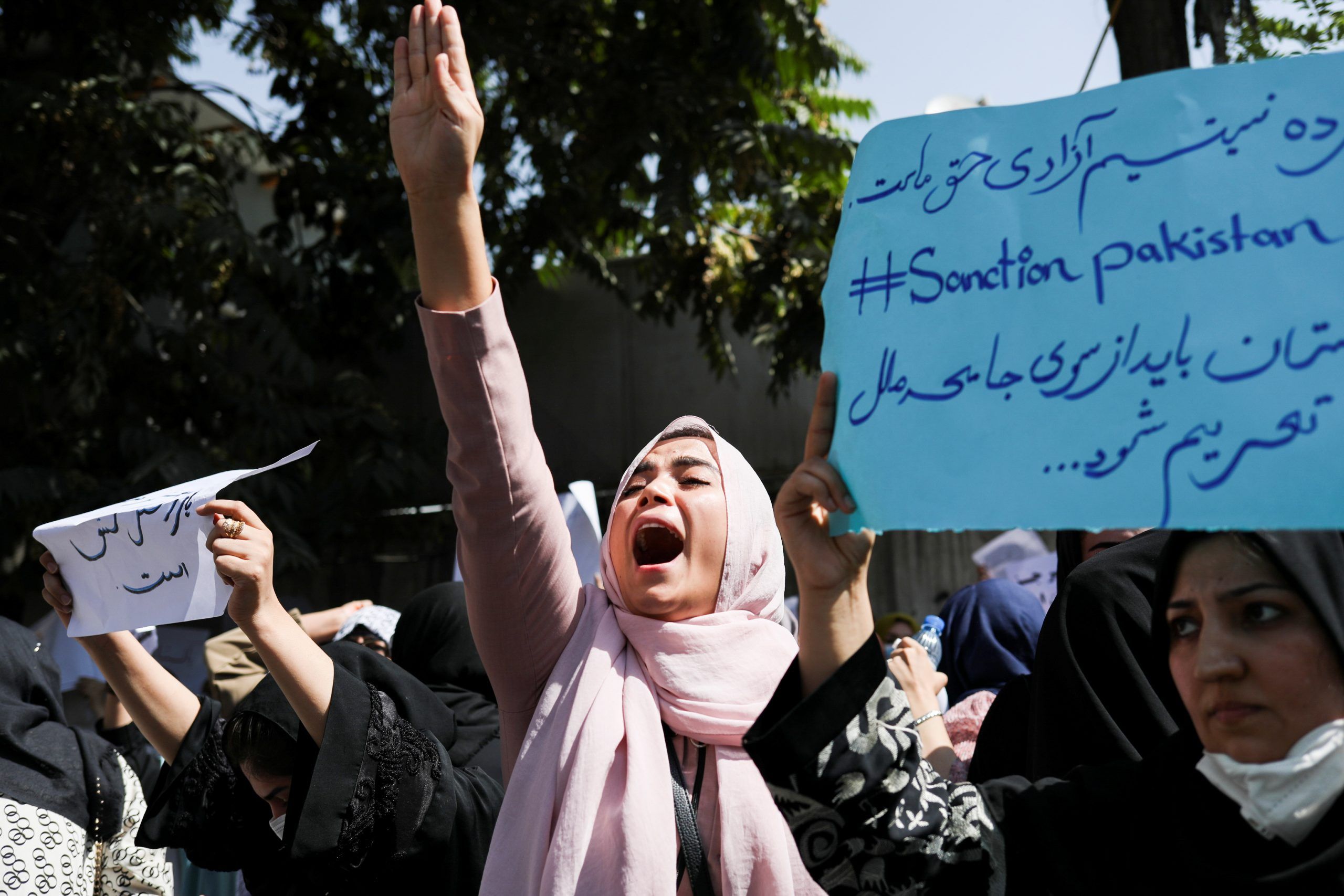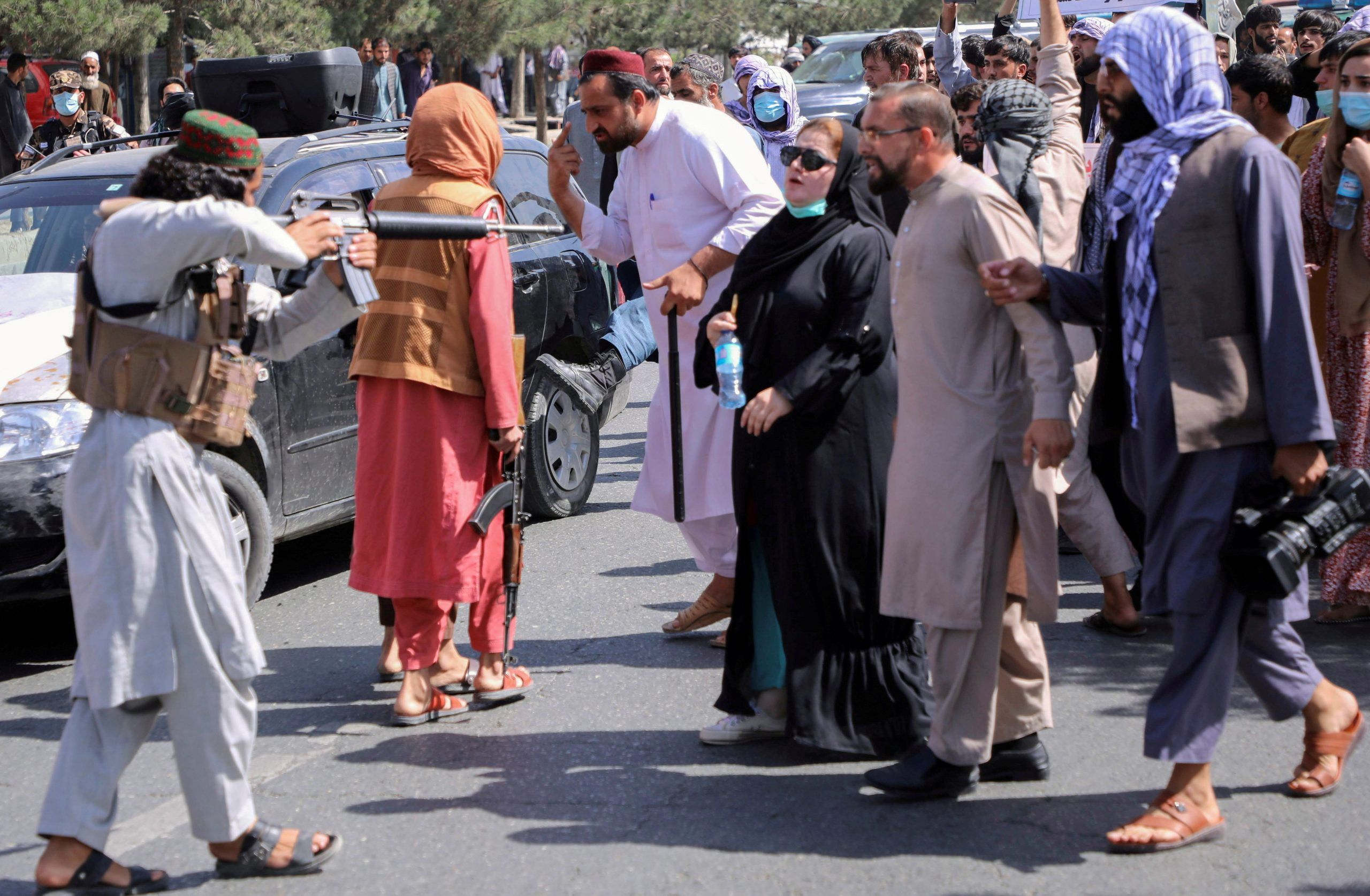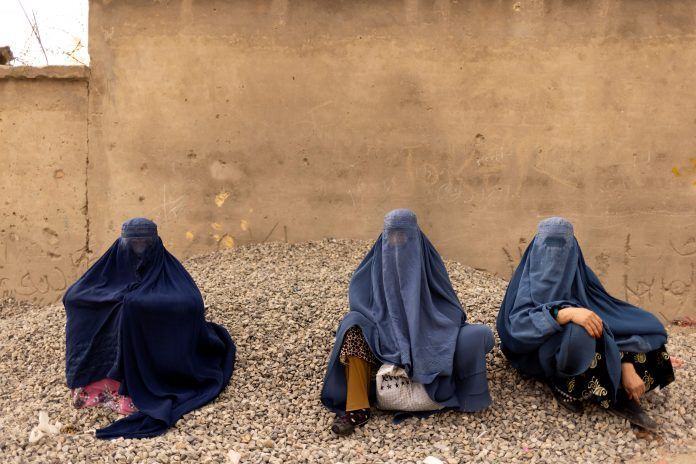
By Annie Banerji, Emma Batha and Shadi Khan Saif
NEW DELHI/LONDON/ISLAMABAD, Oct 28 (Thomson Reuters Foundation)
Cooped up at home in Herat, Afghanistan, Zainab Muhammadi reminisces about hanging out with her friends in the cafeteria after coding class. Now she logs on every day to secret online lessons.
Her school shut down after the Taliban took control of the country in August. But that did not stop Muhammadi from learning.
“There are threats and dangers to girls like me. If the Taliban get to know … they might punish me severely. They might even stone me to death,” said Muhammadi, who requested to use a pseudonym to protect her identity.
“But I have not lost hope or my aspirations. I’m determined to continue studying,” the 25-year-old told the Thomson Reuters Foundation on a video call.
She is one of an estimated hundreds of Afghan girls and women who are continuing to learn – some online and others in hidden makeshift classrooms – despite the Taliban’s closure of their schools.
Fereshteh Forough, the CEO and founder of Code to Inspire (CTI) – Afghanistan’s first all-female coding academy – created encrypted virtual classrooms, uploaded course content online, and gave laptops and internet packages to about 100 of her students, including Muhammadi.
“You can be locked at home (and) explore the virtual world without any hesitation, without worrying about geographical boundaries. That’s the beauty of technology,” she said.
In September, the government said older boys could resume school, along with all primary-age children, but told older girls roughly aged 12 to 18 to stay home until conditions permitted their return.
The Taliban, who barred girls from education during their last rule about 20 years ago, has promised it will allow them to go to school as it seeks to show the world it has changed.
A senior U.N. official who met the Taliban earlier this month said the government was working on a framework, which would be published by the end of the year.
“The education gains of the past two decades must be strengthened, not rolled back,” said Omar Abdi, deputy executive director of the U.N.’s children’s agency UNICEF.
MISSED OPPORTUNITIES
After the Taliban were ousted in 2001, school attendance rose rapidly, with more than 3.6 million girls enrolled by 2018, according to UNICEF.
The number going to university, now in the tens of thousands, also jumped. Nearly 6% of women were accessing tertiary education in 2020, up from 1.8% in 2011.
Nonetheless, the country has one of the world’s biggest education gender gaps, with UNICEF saying girls account for 60% of the 3.7 million Afghan children out of school.
Failing to let girls finish their education bears a huge cost, including poverty, child marriage, early childbearing, and a lack of understanding of their rights and ability to access basic services, campaigners say.
“Education allows them to take care of their health, have a stronger voice in their family, prevent domestic violence and become breadwinners,” said Forough, whose school teaches everything from English to graphic design and mobile application development.
“We didn’t want to wait. We wanted to continue our mission.”
SCARED TO STUDY
The Taliban have also suggested that they may turn to technology to help some women continue to study.
The education minister, Abdul Baqi Haqqani, said at a news conference last month that women would be allowed to study in universities, but gender-segregated classrooms would be mandatory and female students should be taught by women.
Where this was not possible, he indicated teaching could be done through streaming or closed circuit television.
While some private universities have reopened, public universities remain closed.
Psychology student Aisa had hoped to use her degree to help the mental health of young Afghans – which she says is a major, but poorly understood issue in the country.
But her dreams evaporated as the Taliban swept to power and she is now in hiding following threats to her family.
Aisa is about to start a health science degree with the University of the People, a U.S.-based organisation providing online courses to students worldwide who face barriers to higher education.
The university is offering 1,000 scholarships to Afghan women who can no longer study.
“Without this scholarship I have no opportunities, and my future is broken. This is my last chance to get a degree,” said Aisa, whose name has been changed to protect her identity. “It’s safer for women like me to study underground.”
All her girlfriends back in Afghanistan had been forced to give up their studies, she added. Even if the Taliban eventually allow women to return to university, she said many would be too scared to do so. The University of the People said students only required a smartphone or tablet to take one of its four degree courses – business, education, computer science or health science.
“These women don’t have any alternatives except for online education. Most cannot get out of the country. We are trying to give them some hope,” said university president Shai Reshef.
SURVEILLANCE
Digital experts fear that the cash-strapped Taliban will not be able to maintain energy supplies, communication networks and tech infrastructure.
Not only could satellite companies and fibre providers from neighbouring countries such as Iran snap services, but the Taliban may start snooping on and censoring communications, said Mustafa Soltany, a Kabul-based IT consultant.
“The Taliban are very likely to put in place strict restrictions, monitoring and even spying in the digital arena where they can hunt dissidents, critics,” said Soltany, who has seen Taliban soldiers snatching and searching people’s mobile phones at checkpoints.
But this does not worry Pashtana Zalmai Khan Durrani, founder of non-profit LEARN that has enrolled about 100 girls in an underground school where they are learning science, technology, engineering and mathematics (STEM) on tablets.
She is working with U.S. finance and tech firms to launch satellite internet to circumvent any Taliban curbs.
“I have my bases covered. They can’t do anything even if they try to cut internet access. We will be doing our own thing,” said the 23-year-old, who is hiding at an undisclosed location from the Taliban.
Like some of the students at LEARN, Muhammadi and her CTI classmates have been working remotely with global tech firms on app development and graphic design.
This allows them to earn up to $500 a month – mostly paid in cash or money transfers – and provide for their families, an unthinkable feat during the Taliban’s previous rule.
But Muhammadi does not want to stop there.
“It is always said that Afghan women are weak and can do nothing … but I want to prove that we are strong,” she said.
“I want to continue to study and inspire more students … and be known as one of the best coders in the world.”
(Writing by Annie Banerji @anniebanerji, Editing by Zoe Tabary. Please credit the Thomson Reuters Foundation, the charitable arm of Thomson Reuters, that covers the lives of people around the world who struggle to live freely or fairly. Visit http://news.trust.org)

